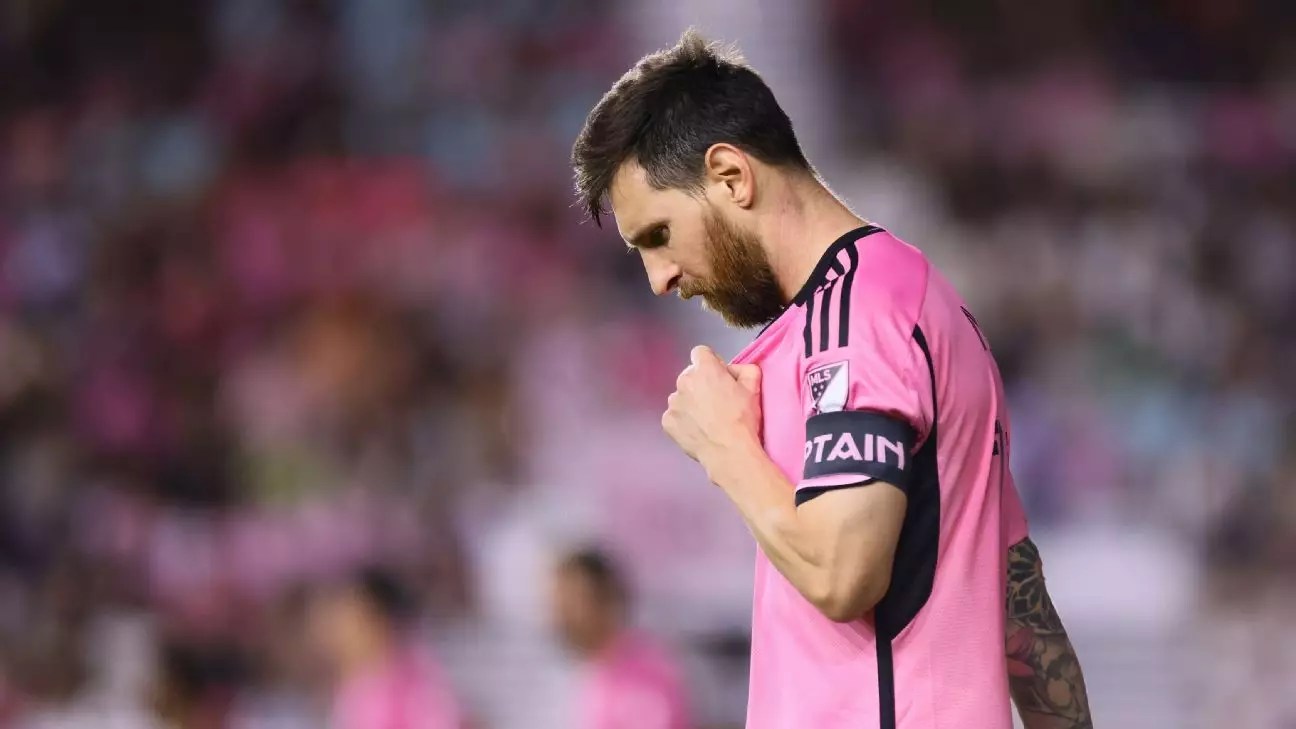The arrival of Lionel Messi at Inter Miami CF undoubtedly turned the club into a beacon of hope and competitiveness in Major League Soccer (MLS). His high-profile presence is not merely about his extraordinary skill on the field; it significantly alters the dynamics within the locker room. As Julian Gressel, a midfielder, aptly pointed out, Messi’s influence pushes his teammates to expect nothing less than perfection. This demand for excellence manifests in the stark reality that ties are deemed “unacceptable.” The mental shift required to play alongside a player of Messi’s caliber can be monumental, as the mere act of drawing a game can evoke frustration from a player who has experienced success at the highest levels of the sport.
Messi, alongside other notable players like Luis Suárez, Sergio Busquets, and Jordi Alba, brings an aura that underscores a cultural shift in the team. Teammates are compelled to raise their game and adjust to the rigorous standards set by those who have dominated football for years. This scenario creates a unique environment where every match is intensely scrutinized, leading to increased pressure on each player to consistently perform at their peak.
The Emotional Rollercoaster of Competition
The physical aspects of soccer are, of course, critical, but the psychological and emotional dimensions are equally significant. Gressel highlighted that the intensity can lead to tension in the locker room. Instances of players confronting each other about performance are commonplace when expectations are this high. In such a competitive landscape, players need to be receptive to feedback, regardless of how challenging it may be. One can imagine the surreal nature of sharing a locker room with globally renowned athletes who hold strong opinions about individual contributions.
Luis Suárez, with his passionate demeanor, often visibly expressed his dissatisfaction, reminding teammates that seriousness is paramount when on the field. While Messi may take a more reserved approach, preferring to communicate directly rather than confrontationally, the emotional weight of feedback remains unavoidable. This layered approach to accountability and communication could potentially foster a more cohesive team unit, should players navigate it effectively.
The 2024 season for Inter Miami ended in disappointment, despite commendable achievements, including acquiring the Supporters’ Shield and setting a record for points in a single season. The transition from high soaring hopes to sudden elimination in the playoffs can leave both players and fans reeling. It raises questions about what went wrong, especially when the team showcased both offensive prowess by scoring a league-high 79 goals and defensive weaknesses by conceding 49.
Gressel noted he observed “warning signs” leading up to the playoffs, hinting at the cracks forming within the team’s structure. In sports, attention to detail is critical, and the inability to rectify defensive pitfalls may have played a significant role in their premature exit. The playoffs are an unforgiving arena where any lapse can become costly, and for a team that performed so well throughout the regular season, failing to solidify their defensive capabilities was a crucial oversight.
As the team heads into the offseason, the challenges are twofold: making roster decisions and finding a new head coach after Gerardo Martino’s resignation. This period represents a critical juncture for Inter Miami CF, as they must reassess their strategies and ensure they build a squad that can meet Messi’s lofty expectations while cultivating harmony among the players.
Emphasizing the importance of both acquiring the right talent and fostering a resilient team culture will be vital moving forward. As they rebuild, striking a balance between showcasing exceptional offensive capabilities and strengthening defensive tactics must be a priority for Miami. The road ahead may be steep, but if they harness the lessons learned from their recent experiences, they might just navigate their way to a more successful campaign next season. Recognizing that elite performance requires not just skill but also adaptability and emotional intelligence will be essential for the promising future of Inter Miami CF.


Leave a Reply